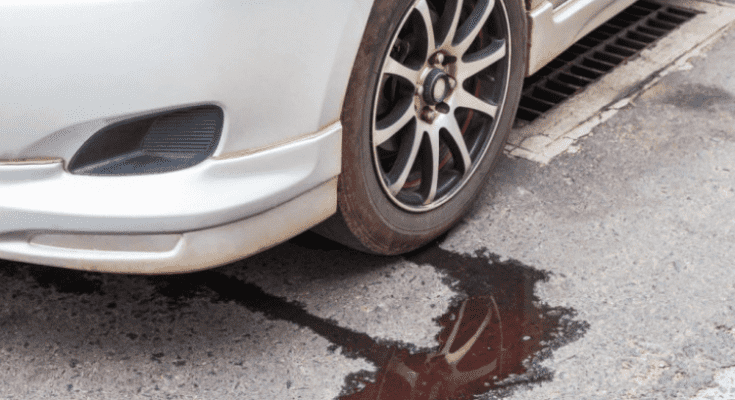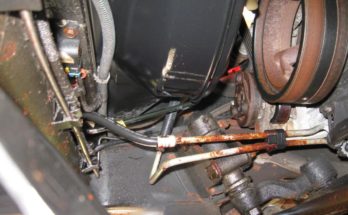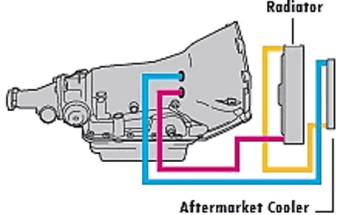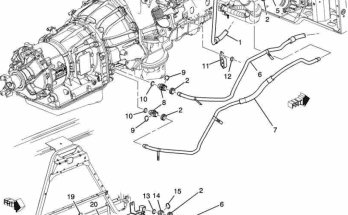When your vehicle’s transmission line breaks, not only can it cause a mess, but can become responsible for thousands of dollars in damage!
If a transmission line breaks it can leak fluid at a very slow pace or create a flood under your car in a matter of minutes. No matter the severity, it’s important to get the transmission line break fixed ASAP to prevent future transmission damage!
Here is what happens when a transmission line breaks on your vehicle.
Fluid Loss
With a transmission fluid line breaking, the first, and most obvious issue is transmission fluid loss. This creates a massive mess not only on the ground, but all over the underside of your vehicle, which is a headache to deal with to put it lightly.
If you are able to visibly detect a leak before driving, you can easily avoid doing any damage to your transmission. If you have the ability to, it would be best to get under the vehicle (safely) to see where the leak is coming from so you have a better idea of what’s needed to fix it.
Transmission Issues & Symptoms
Due to the loss of transmission fluid from the line leak, the transmission might experience a number of issues or symptoms such as:
Unusual Noises
If your transmission is working properly, you shouldn’t hear any noise while you’re driving, as it should be shifting smoothly. Not only do unusual sounds differ between brands and models but they also depend on the type of transmission.
Noises could indicate that the fluid level is getting low, but you most likely won’t be able to diagnose the problem yourself. It’s recommended to have the issue checked out by a certified technician promptly to prevent labor-intensive repairs.
Slipping Gears
A transmission in good shape that has the correct transmission fluid levels will shift between gears smoothly and there won’t be any slippage.
With a transmission line leak, the loss of fluid may cause gears to slip or not shift at all. A slipping gear might seem like a small issue at first, but it’s always a good idea to have the transmission line fixed to prevent more damage, which can occur quickly if neglected.
Poor or Lazy Shift Feeling
Along with slipping when shifting, low transmission fluid from a line breakage can also cause low levels of pressure. This causes shifts to happen much slower than usual.
If you notice your transmission takes a second to shift, or just feels overall lazy, you need to check fluid levels and top the transmission off until you can get it fixed..
Slow Acceleration
A common symptom of a transmission fluid line leak is when your vehicle is slow to go or completely unresponsive when accelerating. This is usual when transmission fluid is low based on it not having enough pressure throughout the transmission fluid passages.
Check Engine or Transmission Warning Light Is On
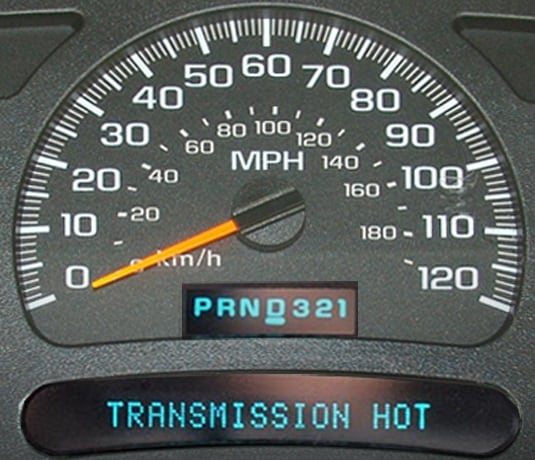
When a check-engine light appears up on your dashboard, you should always go to your local auto repair shop, to have it looked at. If it’s more convenient, you can go to a local auto parts store and they should be able to read the codes for you at no cost. The best option is to stop driving with a noticeable transmission line leak and check the code your self if you have your own code reader.
You can cross-reference your code here.
High Transmission Temperatures
With a loss of fluid, transmission temperatures will quickly creep up and not be able to cool down. Since fluid helps keep transmission temperatures down, a lack of fluid does a lot more harm than good, and no transmission cooler will help in this situation.
Below is a chart showing how long you can expect your transmission to last at a given temperature.
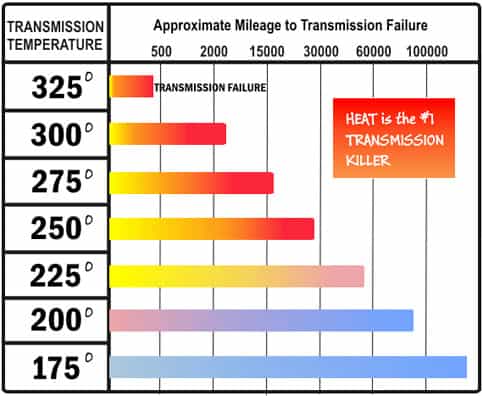
Complete Transmission Failure
If your transmission cooler line leak has caused any of the above symptoms, you might still have time to fix the leak and refill the fluid before it’s too late. If you drove too long with any of these issues, your transmission might fail and require a rebuild.
This is a very costly option, but might be necessary to get you back on the road as quickly as possible.

